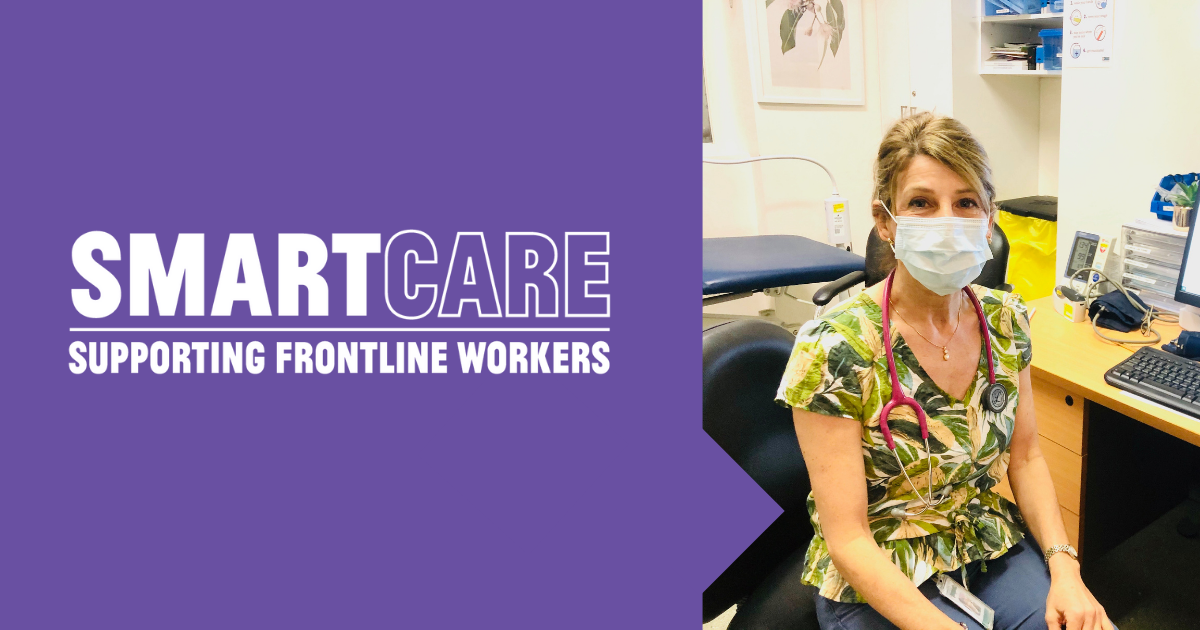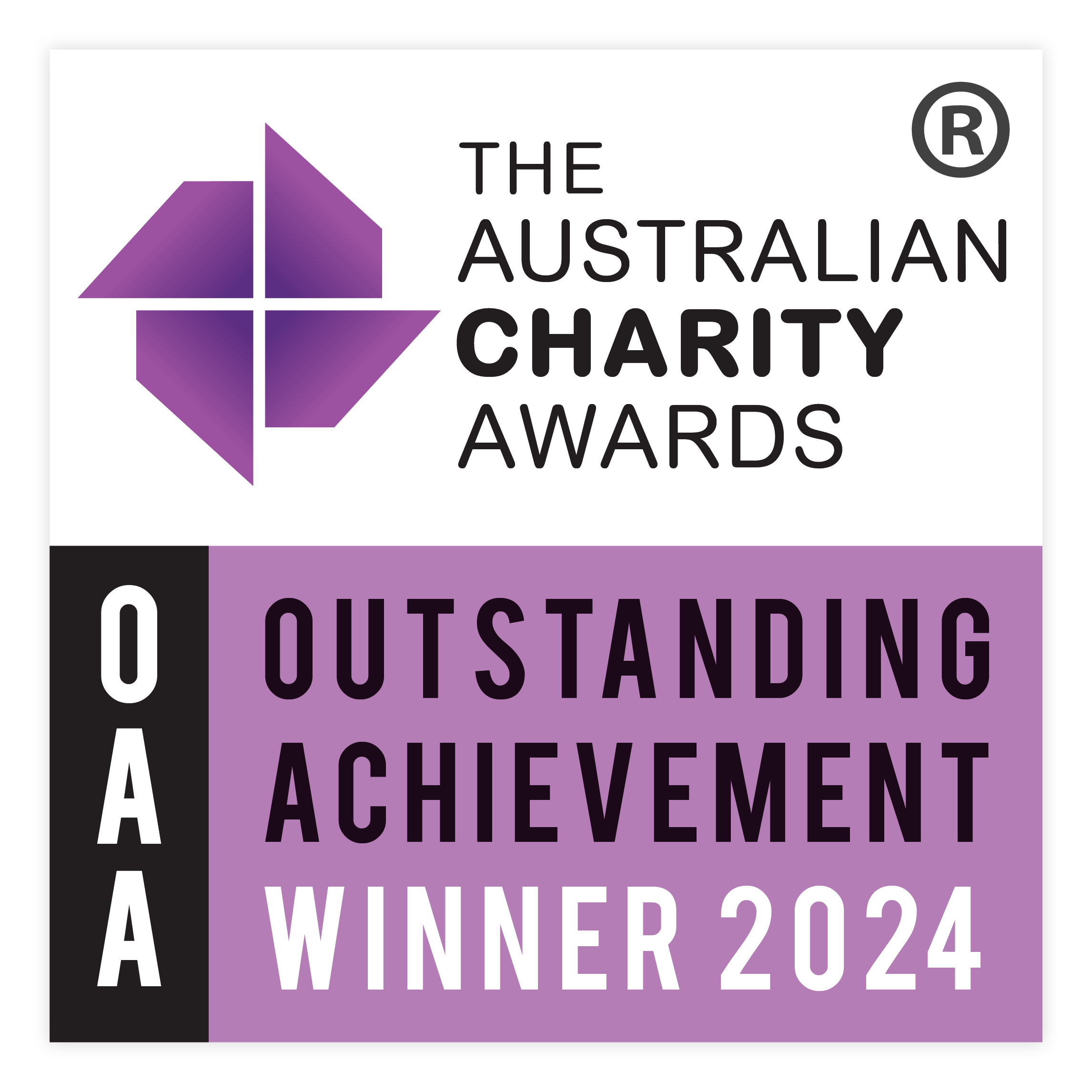
Frontline homelessness case work is often distressing and enormously challenging work which can result in anguish, stress and a feeling of hopelessness for workers. Staff burnout happens regularly. Then along came COVID-19.
Since the start of the COVID-19 pandemic, we have been concerned for the welfare of vulnerable people and the essential, frontline staff that are working to assist and protect them. We immediately responded by establishing our COVID-19 Emergency Response Fund and our SmartMeals program, resulting in donors generously providing over $608,212 in community grants to frontline services impacting the most vulnerable.
We are in regular, direct contact with our community partners to find out what is needed and how staff are coping, and there is a real concern for the health of workers.
Much has been done in the community to recognise the work of health workers, but little has been done for our essential, frontline community workers. Many of these workers are in close, daily contact with vulnerable clients, providing vital support services and sometimes healthcare. Many managers identified that they are under financial pressure, and assistance with staff supervision and support budgets, especially at smaller organisations, would be very helpful.
This is why we have established SmartCare, a campaign helping fund mental and physical wellbeing programs at homeless organisations.

“Targeted support for front line staff is critical. There is little to no funding for self-care, development, reflection and support for our sectors heroes. Small grants like SmartCare help NGO’s attract and retain amazing talent. Ultimately, the best staff means the best outcomes for the most vulnerable people in our community.”
Ben Vasiliou, Chief Executive Officer, Youth Projects
Prior to COVID-19
Homelessness barely rates a mention during elections, yet it impacted the lives of around 280,000 men, women and children last year. It is a forgotten crisis and the homeless sector has been underfunded and under resourced for decades. Frontline workers are predominantly women, they have poor rates of pay and are often on precarious short-term contracts, reflecting the uncertain nature of Government funding.
As homelessness has steadily increased, more and more people are seeking to access services. Workers on the front line often turn people away without proper assistance due to the lack of emergency accommodation, affordable housing or emergency relief funding. Vulnerable people often exit hospital and prison, discharged back onto the street, and young people exiting state care end up homeless at alarming rates. Many are experiencing mental health, health and housing crisis. These are systemic issues Governments must solve.
Moral Injury
This is distressing and enormously challenging work often resulting in anguish, stress and a feeling of hopelessness. Staff burnout happens regularly. More recently ‘moral Injury’ or ‘moral distress’ has been identified – describing the challenge of simultaneously knowing what care clients need but being unable to provide it due to constraints that are beyond your control. Workers also suffer ‘vicarious trauma’ through working with traumatised people, and hearing distressing material or stories. Yet day in day out frontline workers are there doing their best in challenging circumstances.
“SmartCare is an amazing initiative to ensure the well-being of our staff. Many of our staff are over stretched due to constantly going above and beyond. Our residential staff regularly witness and experience vicarious trauma, and are required to navigate within a service system that doesn’t function effectively. You need to be tenacious to work here.”
Grace Ivy Rullis, Acting CEO, The Haymarket Foundation

Let’s care for our essential workers
As the economic fallout of COVID-19 moves through the community, we are seeing trends of increased demands for support services, yet staff are already weighed down with large caseloads. Here at StreetSmart we believe we need to support and look after our key workers better, building resilience and capacity in our community sector. From research, we also know many community organisations have been hit hard by the pandemic, especially fundraising, making future revenue uncertain. So smaller organisations will struggle to prioritise and fund the support systems that staff need. We are perfectly placed to do this through a Community Grants initiative.

“Our team of youth workers have demonstrated incredible resilience during this very stressful time. COVID presented multiple additional challenges every day on top of their already complex work, supporting young people experiencing homelessness. Most of our staff are highly empathetic so this impacts them deeply. There is absolutely no wriggle room in a small NFP bottom line for staff recognition or self-care so a small SmartCare grant would benefit the team greatly.”
Melissa Porter, Homelessness Services Manager, Youth Futures
It’s crucial workers look after their own health and our support through SmartCare will do this and say thank you during these challenging times. Smaller homeless services have identified to us a range of initiatives SmartCare grants could activate to help with staff wellbeing. These include critical debriefing and reflective practice psychologist sessions, mental health first aid courses, remote counselling, self-care initiatives including vouchers, new staff equipment and team building sessions. As one front line manager stressed to us “the ripple effect of such wellbeing grants is a significant positive cultural impact throughout our entire workplace.”
Our ambition is to raise and distribute $250,000 to fund staff wellbeing programs, if you can contribute please donate here and please share this blog on social media.
Further Information
If you personally need help or resources
Call Beyond Blue 1800 512 348 or Lifeline on 13 11 14 https://coronavirus.beyondblue.org.au/
Research into the not-for-profit sector
- https://xfactorcollective.com/research
- Community Group Survey Reveals Impact on Community Sector
Further reading on moral injury








